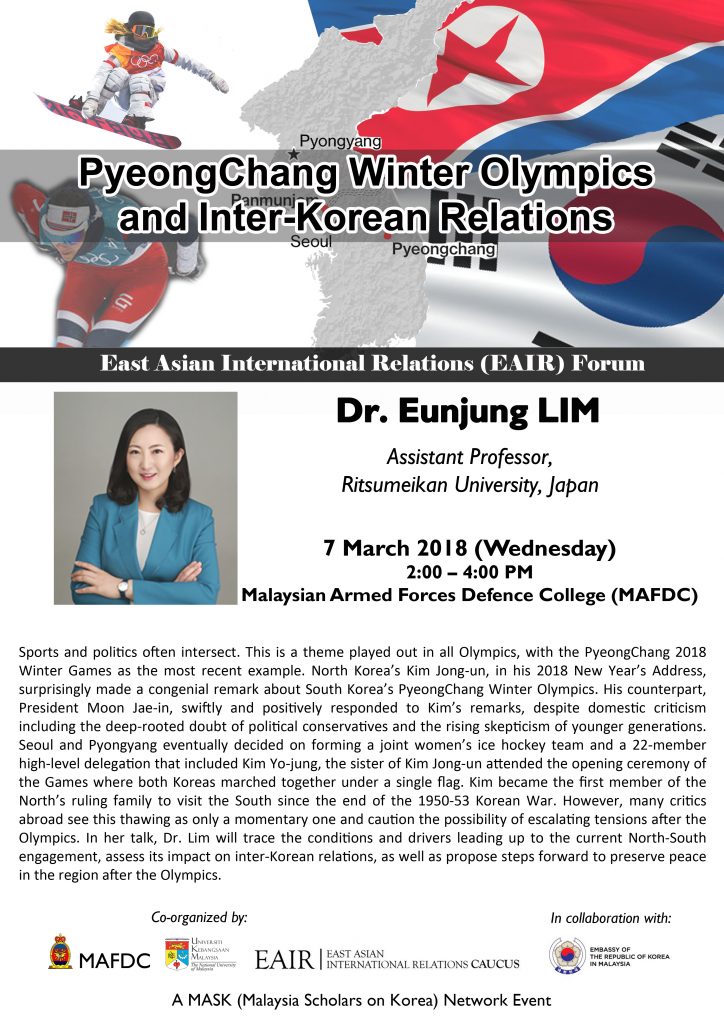
Dr. Eunjung Lim
7 March 2018
Sports and politics often intersect. This is a theme played out in all Olympics, with the PyeongChang 2018 Winter Games ad the most recent example. North Korea’s Kim Jong-un, in his 2018 New Year’s Address, surprisingly made a congenial remark about South Korea’s PyeongChang Winter Olympics. His counterpart, President Moon Jae-in, swiftly and positively responded to Kim’s remarks, despite domestic criticism including the deep-rooted doubt of political conservatives and the rising skepticism of younger generations. Seoul and PyeongChang eventually decided on forming a joint women’s ice hockey team and a 22-member high-level delegation that included Kim Yo-jung, the sister of Kim Jong-un attended the opening ceremony of the Games where both Koreas marched together under a single flag. Kim became the first member of the North’s ruling family to visit the South since the end of the 1950-53 Korean War. However, many critics abroad see this thawing as only a momentary one and caution the possibility of escalating tensions after the Olympics. In her talk, Dr. Lim will trace the conditions and drivers leading uo to the current North-South engagement, assess its impact on inter-Korean relations, as well as propose steps forward to preserve peace in the region after the Olympics.
About the Speaker: Dr. Eunjung Lim is an Assistant Professor at the College of International Relations, Ritsumeikan University. Her areas of specialization include international cooperation, comparative and global governance, and energy and climate change policies of East Asian countries. Prior to this, Dr. Lim taught at Johns Hopkins’ School of Advanced International Studies (SAIS). She also taught at several universities in Korea, including Yonsei University and Korea University. She has been a researcher and visiting fellow at distinguished research institutes including the Center for Contemporary Korean Studies at Interfaculty Initiative in Information Studies at the University of Tokyo, the Institute of Japanese Studies at Seoul National University, the Institute of Japan Studies at Kookmin University, and Institute of Energy Economics, Japan. She earned a B.A. from the University of Tokyo, an M.I.A. from Columbia University and a Ph.D. from SAIS, Johns Hopkins University. She is fluent in Korean, Japanese and English.
